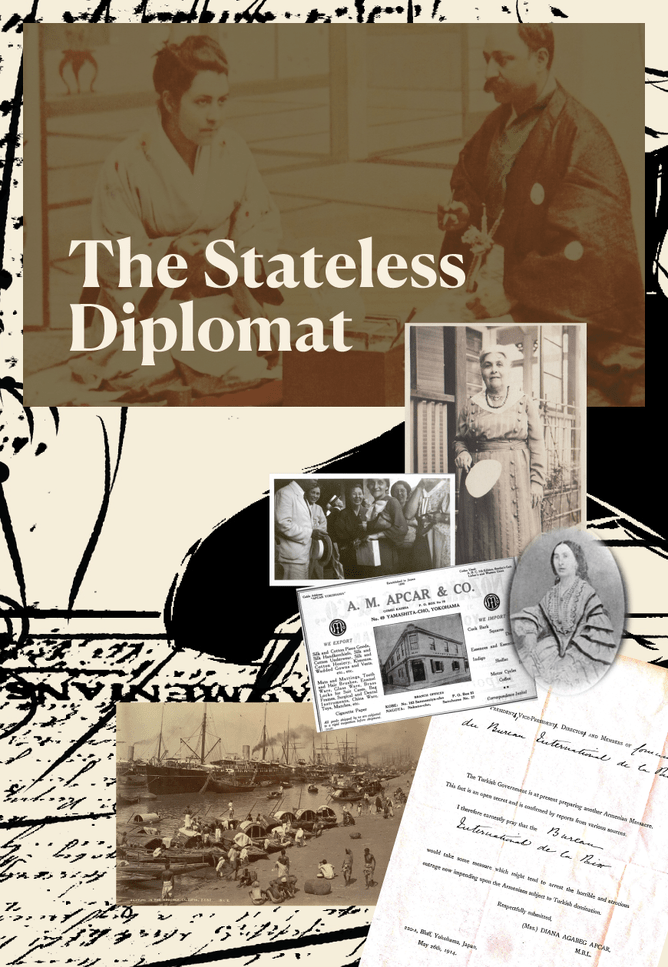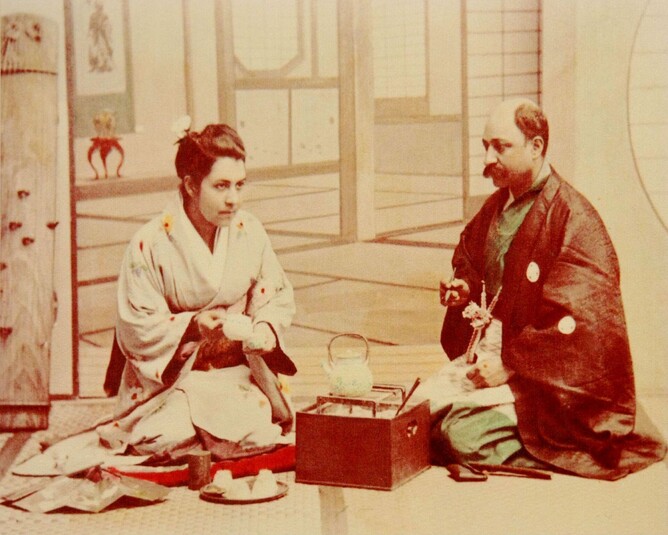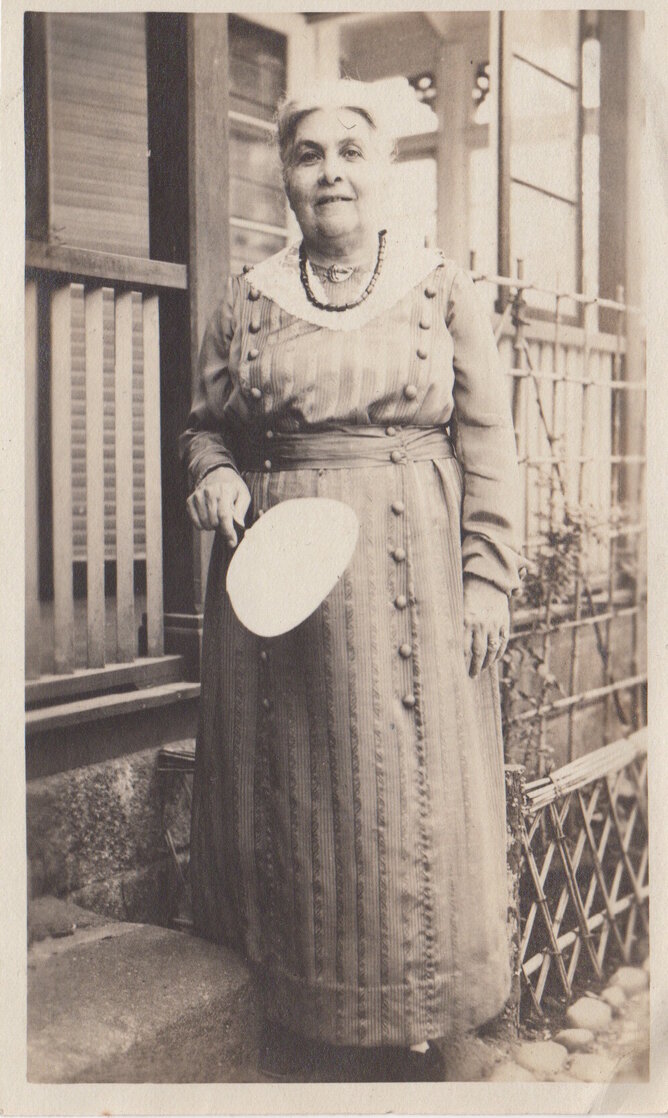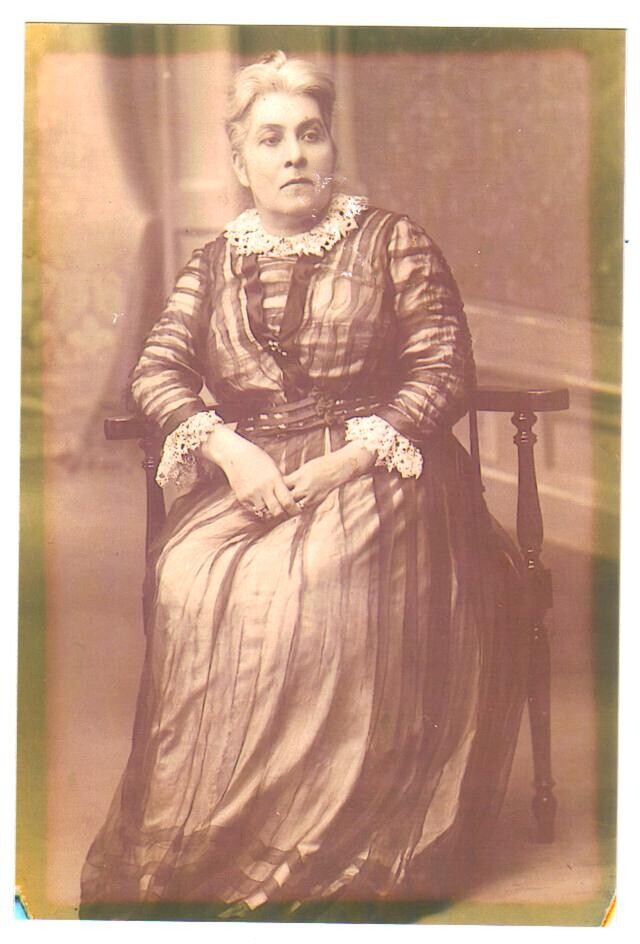Armenia and Japan are two nations with rich and ancient heritages that seemingly have nothing in common. While Armenia is a landlocked nation in the historically turbulent Near East, Japan is an island nation whose culture has been peacefully isolated from the rest of the world for two and a half centuries. In an exciting new development, an international award-winning Armenian film director, Jivan Avetisyan, is bringing an inspiring story to the small screen, bridging these historically separate nations. To date, Jivan has created three feature films (Gate to Heaven; The Last Inhabitant; Tevanik ) and over 10 documentaries and short films. His previous films have received plaudits in various international film festivals and won over 20 prestigious awards. He is now working on his new film projects (Revival, Black List, which are in development and pre-production stages). His new TV series will give life to a 100-year-old story of a Victorian-era Armenian woman (Diana Apcar, 1859-1937), who lived in Yokohama, Japan. At the beginning of the 20th century, when the Ottoman Empire perpetrated the Armenian Genocide, Diana Apcar became the de facto ambassador of the Armenian nation, by singlehandedly rescuing over 1,000 refugees.
Mass displacement has always been an unpleasant outcome of human warfare. Until today, we continue to deal with major refugee crises. Despite all the modern-day regulations, international agreements, and laws that exist to protect the rights of refugees and provide governmental protections, the majority of refugees primarily depend on humanitarian aid.
Diana Apcar’s story is one of courage and perseverance — her story emphatically demonstrates that one person with enough determination to protect and provide aid for those in need can make a difference and save lives, despite any lack of financing and governmental support.
In this unique series, two stories, a century apart, intertwine. First, there is the story of Nakajima Hideharu, whose character appears in the series as Hiro. Hiro is a young Japanese artist with a life-long, deep interest in Armenian history, who falls in love with an Armenian woman during his first trip to Armenia. A century back is the story of the Armenian heroine, Diana Apcar, living in Yokohama and saving refugees fleeing the Armenian Genocide. Diana’s story is told through Hiro’s pen, as he reveals her life through his artistry — inspired by her Yokohama gravesite and 100-year-old books. This eight-part-drama has international appeal and addresses universal themes such as cross-cultural love, a woman’s struggle for independence and self-expression, a people’s fight for self-determination, and a refugee’s struggle for survival; all set in a historical context and based on true events.
The mini-series will “inherit” the title of the documentary film, The Stateless Diplomat, which was produced by Diana Apcar’s great-granddaughter, Mimi Malayan. Her documentary won the Armin T. Wegner Humanitarian Award (Arpa International Film Festival, 2019), Best Biographical Film (New Hope Film Festival, July 2019), and Audience Choice for Best Documentary (Pomegranate Film Festival, November 2018). The documentary film has also screened in Japan at the Senior Women's Film Festival (Osaka, December 2019), and at the 44th Screening of Films Directed by Women, hosted by the Society for the Study of Women in Films (December 2021).
In the creative team of this TV mini-series is included also Meline Mesropyan who has a years of experience researching the life of Diana Apcar for her master and doctoral studies at Tohoku University. In addition to supporting this series, she plan to publish a book (coauthored with Arisa Ohta) based on her PhD dissertation by the end of this year. As the book is written in Japanese, it will serve as a prelude to the film-series, The Stateless Diplomat, for Japanese audiences.
The project is still in the development stage with the main producing countries being Armenia, Japan and the US. There are Japanese characters in the story and a large part of the story unfolds in Japan. In order for the shooting of the film to be possible and productive in Japan, the active involvement of representatives from the Japanese film industry is essential.
The Marché du Film will be held on May 17- 25 in Cannes, France, where Mr. Avetisyan will be present with his team. Mr. Avetisyan will also be in the US at the end of April, from where he will directly proceed to Cannes. The director and his team will meet with Japanese filmmakers, sales companies and TV broadcasting companies. As some events in the mini-series are happening in the US (California), the meetings and discussions with American film companies are also on the agenda.






